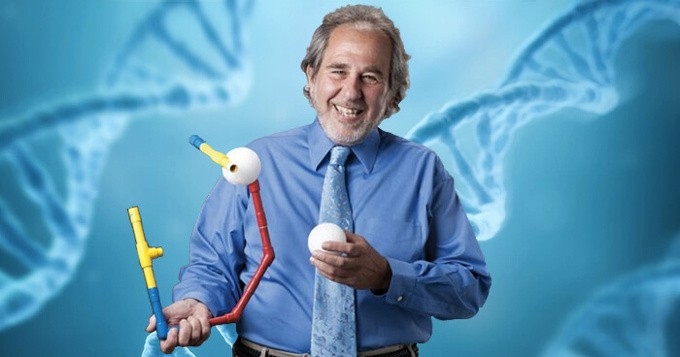
By Dr. Bruce Lipton Ph.D. | Uplift
Becoming the Masters of Our Genes
It was once thought that genes could turn themselves on and off, and in the process, they could control the character of our lives. This belief led to the conclusion that our fate was controlled by the genome we acquired from our mother and father at the moment of conception. Unfortunately, if we do not like the traits we inherited, we cannot change our genes. When we combine these facts with the notion that genes control their own activity, we are left with the inescapable conclusion that we are ‘victims’ of our heredity and should anticipate expressing the diseases and negative traits passed down through our family lineage.
In contrast, my stem cell experiments carried out in the late 60s revealed that genes are not self-actualizing, simply, they are unable to control their own activity. These studies illuminated the new science of epigenetics, which revealed that our genetic activity is ultimately controlled by both a) environmental signals and b) our perception of the environment’s signals. Since we can consciously select our environments and we have control over our perceptions, in truth, we are actually ‘masters’ of our genetic activity.
Current research emphasizes that less than 10%, and perhaps closer to only 1%, of all diseases, are actually due to genes. In fact, there are only six major disorders that are controlled by a single gene, which include cystic fibrosis, hemophilia, Huntington’s disease, Tay-Sachs disease, hereditary hemochromatosis, and Marfan syndrome. In light of this fact, the most profoundly important question to ask is, “Where does 90%, or more, of disease come from?” Answer: “Our own minds.”
If an individual’s mind holds a ‘belief’ that they anticipate expressing a specific disease, it can actually precipitate that illness, and even death itself. Does that imply we are consciously creating illness? Absolutely not! Disease-inducing negative thoughts, recognized as the nocebo effect, operate unconsciously and are almost always related to self-critical and disempowering beliefs acquired from parents, family, and even doctors, before the age of seven. Such beliefs downloaded into the subconscious mind control 95% or more of our cognitive activity and our resulting life experiences.
















